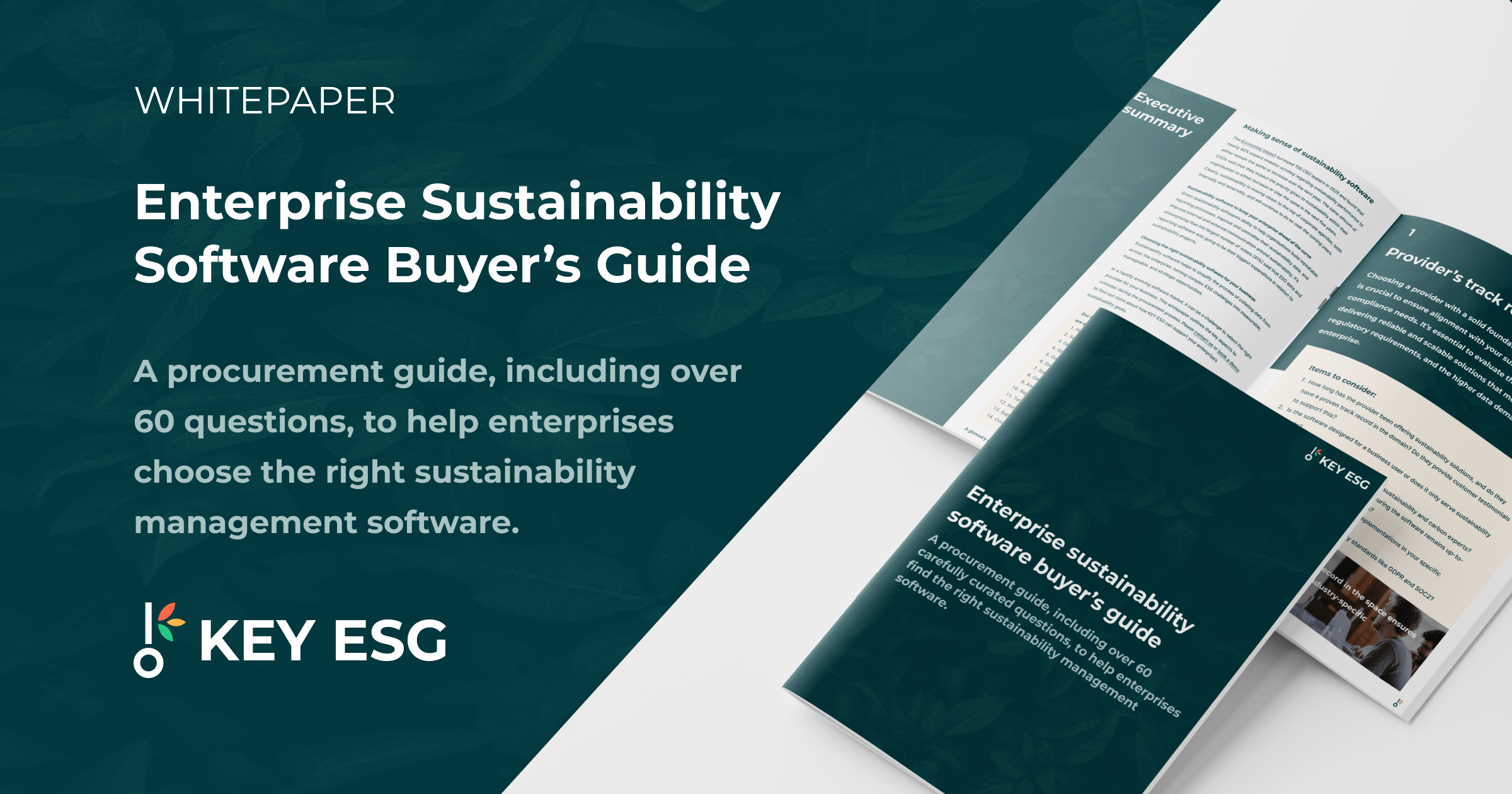Enterprise sustainability software buyer's guide


Sustainability performance is a key value driver for enterprises operating in today’s business environment. The growing demands for transparency in sustainability reporting from regulators, investors, consumers and suppliers require enterprises to collect more data around their sustainability performance than ever before. Additionally, there is a growing emphasis on data accuracy and traceability of its sources, with some regulations now requiring externally audited sustainability data. The absence of standardised global sustainability regulations complicates compliance, adding to the inefficiencies, cost and risks of reporting processes.
When an enterprise is facing these challenges, it is advisable to build repeatable, business-user friendly processes around sustainability management. An appropriate software platform is the foundation of this process and will turn sustainability from a business risk, into a competitive advantage.
The Economist Impact surveyed 150 CSO leaders in 2025 and found that nearly 90% expect investor scrutiny regarding sustainability performance to either remain the same or increase over the next year. Given sustainability software’s ability to help organisations build repeatable reporting processes, improve and centralise their sustainability data, and improve internal and external communication around sustainability, it’s unsurprising that the largest number of voters (41%) said that ESG data and reporting software was going to be their biggest expenditure in relation to sustainability projects.

Sustainability software helps turn complex ESG challenges into measurable, manageable, and strategic opportunities. As businesses face increasing pressure from investors, regulators, customers, and employees, sustainability software provides the tools to not only comply, but to lead.
This guide aims to provide a high-level outline of the 14 key aspects of sustainability software to consider when beginning the procurement process.
1. Provider’s track record & expertise
2. Software architecture & security
3. Data integration capabilities
4. System setup & user access management
5. Compliance with CSRD & other global ESG frameworks
6. Data collection
7. Supply chain management
8. Carbon accounting strength
9. Analytics
10. Reporting
11. Targets & improvement tracking
12. Audits & transparency
13. Support & user-friendliness
14. Customisation & product development
A glossary of the major global sustainability frameworks is also provided.
To find out how KEY ESG can address enterprise sustainability management challenges, please request a demo of our platform.
Sustainability performance is a key value driver for enterprises operating in today’s business environment. The growing demands for transparency in sustainability reporting from regulators, investors, consumers and suppliers require enterprises to collect more data around their sustainability performance than ever before. Additionally, there is a growing emphasis on data accuracy and traceability of its sources, with some regulations now requiring externally audited sustainability data. The absence of standardised global sustainability regulations complicates compliance, adding to the inefficiencies, cost and risks of reporting processes.
When an enterprise is facing these challenges, it is advisable to build repeatable, business-user friendly processes around sustainability management. An appropriate software platform is the foundation of this process and will turn sustainability from a business risk, into a competitive advantage.
The Economist Impact surveyed 150 CSO leaders in 2025 and found that nearly 90% expect investor scrutiny regarding sustainability performance to either remain the same or increase over the next year. Given sustainability software’s ability to help organisations build repeatable reporting processes, improve and centralise their sustainability data, and improve internal and external communication around sustainability, it’s unsurprising that the largest number of voters (41%) said that ESG data and reporting software was going to be their biggest expenditure in relation to sustainability projects.

Sustainability software helps turn complex ESG challenges into measurable, manageable, and strategic opportunities. As businesses face increasing pressure from investors, regulators, customers, and employees, sustainability software provides the tools to not only comply, but to lead.
This guide aims to provide a high-level outline of the 14 key aspects of sustainability software to consider when beginning the procurement process.
1. Provider’s track record & expertise
2. Software architecture & security
3. Data integration capabilities
4. System setup & user access management
5. Compliance with CSRD & other global ESG frameworks
6. Data collection
7. Supply chain management
8. Carbon accounting strength
9. Analytics
10. Reporting
11. Targets & improvement tracking
12. Audits & transparency
13. Support & user-friendliness
14. Customisation & product development
A glossary of the major global sustainability frameworks is also provided.
To find out how KEY ESG can address enterprise sustainability management challenges, please request a demo of our platform.